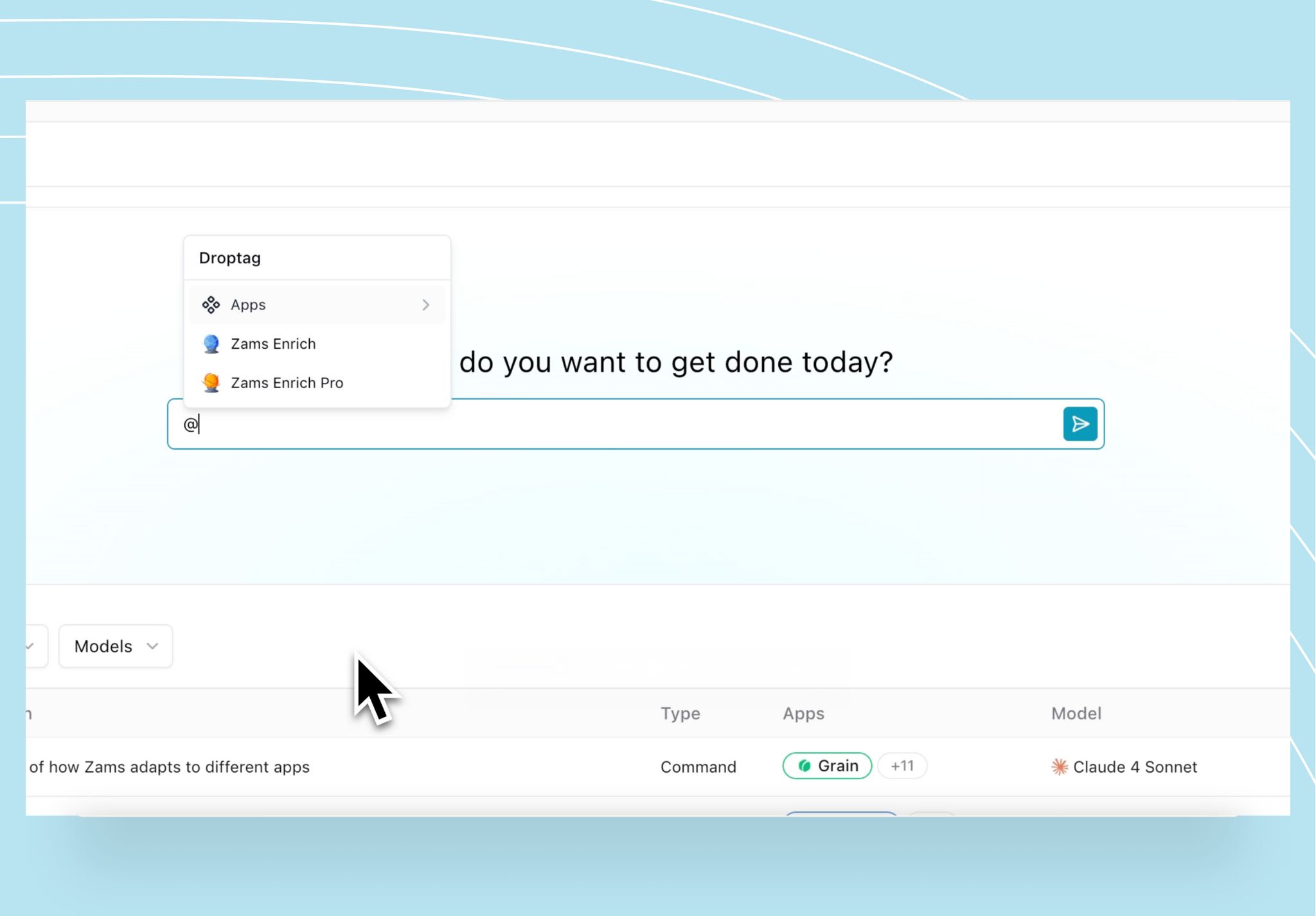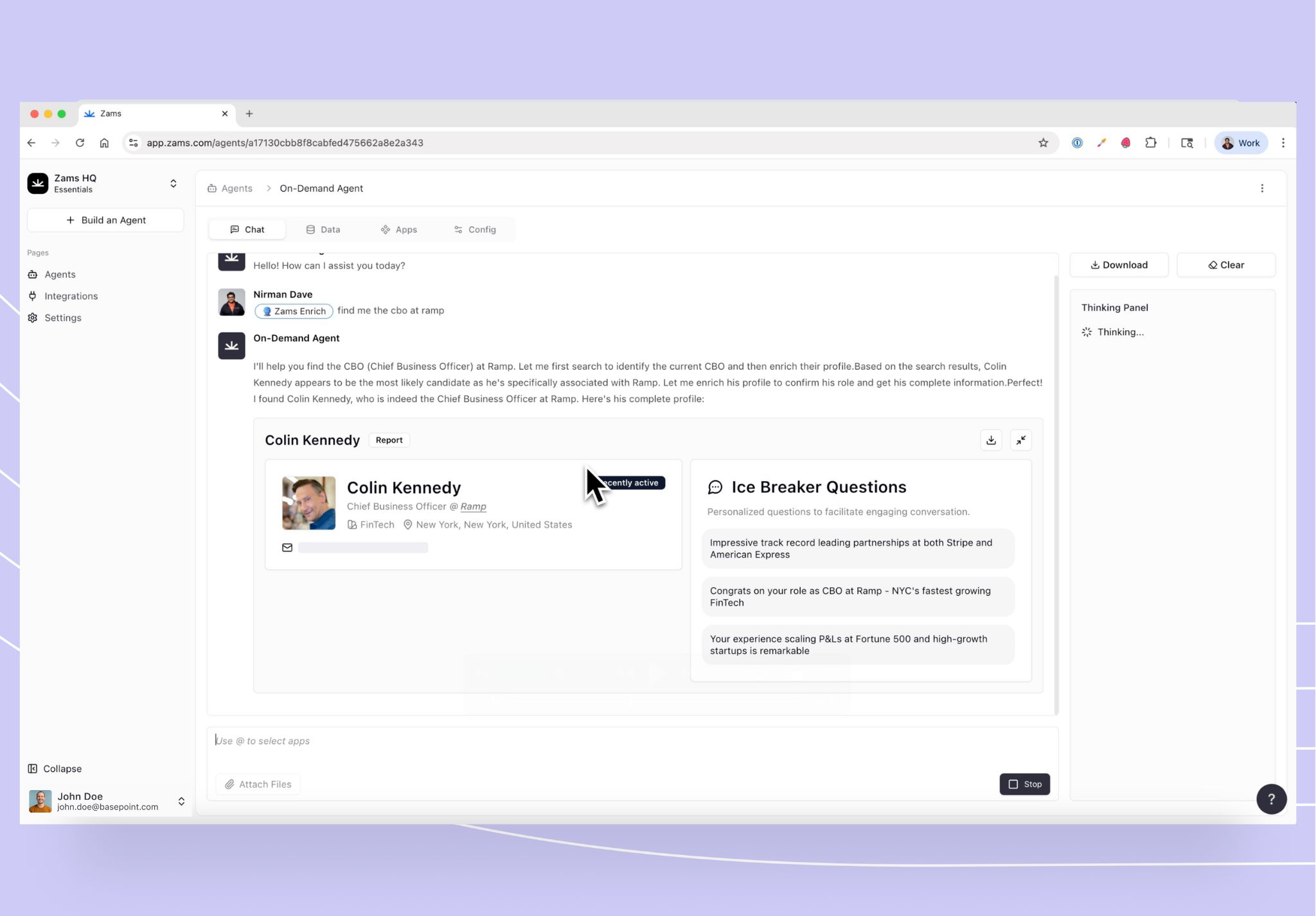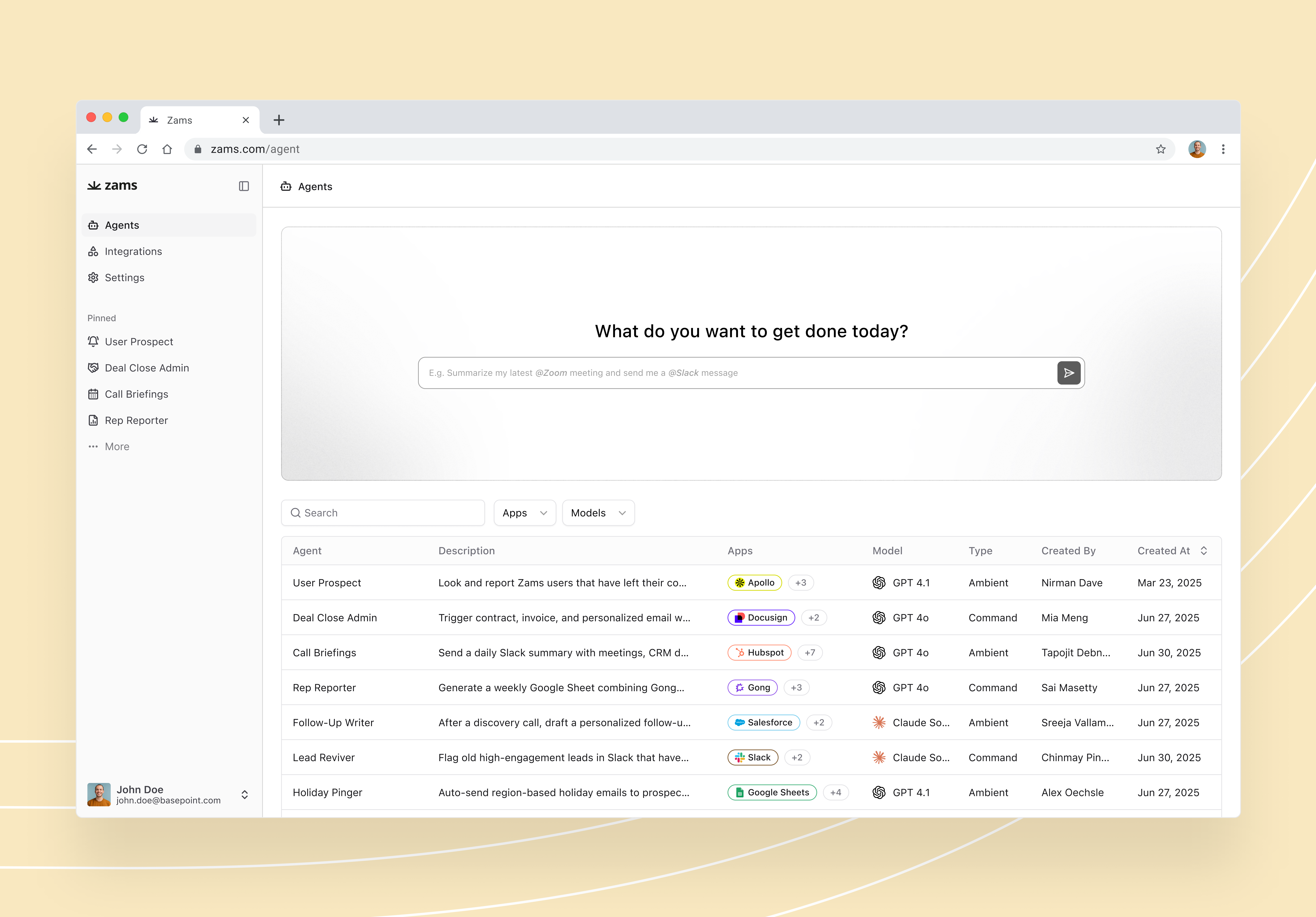The Shift from Support to Strategic Advantage
Sales support meaning in today’s market
Sales support today is far more than administrative assistance. Sales support helps sales representatives by managing tasks such as lead generation, qualification, and opportunity monitoring, allowing them to focus on building customer relationships and closing deals. It’s the structured delivery of tools, resources, and data that directly influence revenue outcomes. In modern B2B environments, sales support teams work as an extension of the sales force removing friction from the sales process and enabling reps to focus on closing deals faster, with various sales support roles such as lead management, data analysis, customer service, and strategic planning all contributing to the sales process.
The role of sales support in deal acceleration
Sales support specialists accelerate deals by streamlining proposal creation and handling research, ensuring that reps have immediate access to pricing, collateral, and customer insights. This proactive role minimizes downtime between customer interactions and shortens the overall sales cycle. When optimized, sales support becomes a driver of competitive advantage, directly contributing to an increase in closed deals.
Sales process and support alignment
True sales performance comes when the two teams: sales support and customer support, operate in alignment. The collaborative efforts of the customer support team, working closely with sales support, enhance the customer journey and help drive revenue growth. Shared systems, standardized processes, and consistent communication between these functions create a seamless customer journey from first contact to close.

Core Functions That Make a Sales Support Team Indispensable
Pre-sales intelligence and preparation
Effective sales support teams gather and organize data before a rep even engages a prospect. They also identify and report potential sales opportunities to sales management, ensuring that new prospects are recognized and prioritized. They provide insights on market trends, competitor positioning, and prospect needs, giving sales reps a strong foundation for their outreach. This preparation ensures every conversation is relevant, timely, and tailored to the buyer’s context.
Operational backbone for the sales team
Sales support handles the essential operational tasks that keep deals moving managing documentation, coordinating schedules, and ensuring compliance with pricing and contract guidelines. They are also responsible for tracking and reporting sales metrics to ensure process consistency. By taking these responsibilities off the reps’ plates, they free up selling time and maintain process consistency across the pipeline.
Cross-department communication hub
Acting as a central link between sales, marketing, finance, customer success, and other departments, sales support ensures that everyone involved in a deal has the information they need. Marketing departments play a crucial role in supporting the sales process by aligning messaging, generating leads, and integrating data to streamline collaboration. This hub function eliminates silos, reduces delays in decision-making, and keeps messaging consistent throughout the sales process.
Building Strong Customer Relationships
The role of sales support in customer satisfaction and engagement
A strong sales support team is essential for fostering meaningful customer engagement throughout the sales process. By managing critical administrative tasks such as data entry, scheduling meetings, and preparing documentation, sales support teams enable sales representatives to dedicate more time to building relationships with potential clients. This division of labor not only boosts the productivity of the sales team but also ensures that customers receive prompt, attentive service at every stage of their journey. When both the sales team and the sales support team work in harmony, they create a seamless experience that leads to higher customer satisfaction and increased loyalty. Support teams also play a key role in addressing customer inquiries and resolving issues quickly, which helps maintain positive client relationships and drives repeat business. Ultimately, a strong sales support team empowers sales reps to focus on what they do best, closing deals and generating revenue while ensuring that every customer interaction is handled with care and professionalism.
Personalization and trust-building sales strategies
Personalization is at the heart of building trust and long-lasting customer relationships. Sales support teams contribute significantly to this effort by equipping sales reps with up-to-date customer data and actionable insights. By leveraging customer relationship management (CRM) systems, support teams help sales reps stay informed about each client’s preferences, previous interactions, and unique pain points. This enables the sales team to tailor their sales strategies and communications to each customer, making every interaction feel relevant and personalized. Additionally, sales support teams play a crucial role in managing and resolving customer complaints efficiently, demonstrating a genuine commitment to customer satisfaction. By ensuring that every concern is addressed promptly and fairly, support teams help build trust and reinforce the company’s reputation for excellent service. Through these efforts, sales support teams not only enhance the effectiveness of sales reps but also contribute to stronger, more loyal customer relationships.

Effective Lead Generation
Sales support’s contribution to sourcing and nurturing leads for more deals
Sales support teams are instrumental in driving effective lead generation and nurturing, which are critical for sustained business growth. By collaborating closely with sales reps, sales support teams help identify and qualify potential customers, ensuring that the sales team focuses on the most promising sales opportunities. Support teams conduct thorough market research, analyze sales trends, and gather valuable data on potential clients, enabling the development of targeted marketing campaigns that attract high-quality leads. Additionally, sales support teams assist in qualifying leads by providing insights into customer behavior, preferences, and needs, allowing sales reps to prioritize their sales efforts and maximize their chances of closing deals. By managing the flow of information and maintaining accurate customer records within CRM systems, sales support teams ensure that the sales process remains efficient and that no opportunity is overlooked. This collaborative approach not only streamlines lead generation but also strengthens customer relationships, resulting in more sales, increased revenue, and a healthier sales pipeline for the entire organization.
Technology That Transforms Sales Support
- CRM and sales team support platforms:
A robust CRM system is the backbone of modern sales support. It centralizes customer data, tracks interactions, and enables support teams to provide reps with real-time updates on account status and deal progress. This visibility keeps sales teams focused and informed, directly contributing to the team's productivity by streamlining workflows and making it easier to track key metrics for customer relationship development. - Workflow automation:
Automation tools streamline repetitive processes like follow-up scheduling, proposal generation, and lead routing. These tools enable multiple people to collaborate more effectively on sales processes by centralizing tasks and communication. By removing manual steps, workflow automation allows sales support teams to operate faster, with fewer errors, and at greater scale directly impacting deal velocity. - Integrated analytics:
Analytics tools give sales support teams the power to identify patterns, forecast outcomes, and measure the impact of their efforts. By analyzing prospect behavior and engagement, these tools support lead qualification by helping teams identify and prioritize high-potential prospects, ensuring that sales reps focus on leads most likely to convert. Integrated into daily operations, these insights guide resource allocation, highlight opportunities for improvement, and ensure sales strategies are data-driven.

Best Practices for Maximising Sales Support Impact
Aligning goals with revenue outcomes
Sales support must operate with clear ties to revenue objectives. By aligning their priorities with the sales team’s quota targets and pipeline goals, support teams ensure their efforts directly contribute to measurable business outcomes. This focus turns support from a cost center into a revenue-driving function, ultimately leading to more revenue for the business.
SLAs and process discipline
Service Level Agreements (SLAs) set clear expectations for response times, task completion, and handoffs between teams. Consistent process discipline ensures that deals move through the pipeline smoothly, without bottlenecks or missed deadlines, and builds trust between reps and their support counterparts. This disciplined approach results in a higher likelihood of successful deal closures.
Training and enablement
Ongoing training equips sales support teams with the latest tools, market knowledge, and process updates. Collaborating with the marketing team for ongoing training and enablement ensures that sales support is aligned with current messaging and resources, maximizing the impact of both teams. This continuous enablement helps them anticipate rep needs, adapt to market changes, and maintain a high standard of performance across every deal.
Proving the ROI of Sales Support
- Shorter deal cycles:
When sales support removes operational friction, deals progress faster from qualification to close. By researching and identifying new sales opportunities, sales support helps sales teams act quickly on potential leads, which can significantly shorten deal cycles. Tracking reductions in average cycle length demonstrates how strategic support accelerates revenue capture. - Higher win rates:
Access to accurate data, timely resources, and streamlined workflows improves a rep’s ability to compete and close. The ability to qualify leads more effectively ensures that sales teams focus on high-potential prospects, directly contributing to higher win rates. Measurable increases in win rates highlight the tangible value of sales support to the bottom line. - Sales Rep productivity gains:
By offloading admin-heavy work, sales support increases the productivity of each sales rep by allowing them to focus more on generating leads and closing deals. Productivity gains can be tracked in higher activity levels, greater pipeline coverage, and improved quota attainment.
Final Thoughts
Sales support has evolved from a reactive function into a strategic driver of revenue. When equipped with the right processes, technology, and alignment, sales support teams can cut deal cycles in half, boost win rates, and free reps to focus on high-value selling. Strong sales support leads to a better customer experience, increased customer loyalty, and stronger brand loyalty. Businesses that treat sales support as a growth engine rather than an afterthought, position themselves to move faster, win more, and deliver a better buying experience. Effective sales support also results in more repeat customers, happy customers, and the acquisition of new customers.
Equip Your Sales Support with Zams
Zams empowers sales support teams with the tools to accelerate every stage of the deal. From CRM integration to automated workflows and real-time analytics, Zams removes bottlenecks and keeps every deal moving. Reps get the insights and nudges they need to close more business, faster.
Try these Zams Sales Support Integrations:
- Affinity
- Close
- Gmail
- Google Calendar
- Google Contacts
- Google Sheets
- Grain
- Hubspot
- Microsoft Outlook
- Notion
- Slack
FAQ
What does sales support do in a modern B2B sales team?
Sales support provides sales representatives with the resources, tools, and information they need to close deals faster. This includes tasks like lead management, data analysis, proposal preparation, and cross-department coordination to remove friction from the sales process.
How does sales support accelerate deal cycles?
By handling time-consuming administrative and operational tasks, sales support frees reps to focus on selling. They provide pre-sales intelligence, manage documentation, and ensure quick access to pricing, collateral, and customer insights—helping move deals from proposal to close more quickly.
Why is sales and support alignment important?
Alignment ensures sales support, sales reps, and customer support teams work toward shared goals with consistent communication. This creates a seamless customer journey, improves collaboration, and ensures every touchpoint reinforces the sales process.
What technology improves sales support effectiveness?
CRM platforms, workflow automation tools, and integrated analytics are key. These technologies centralise customer data, streamline repetitive tasks, and provide real-time insights that allow support teams to prioritise high-impact activities.
How can businesses measure the ROI of sales support?
Key metrics include shorter deal cycles, higher win rates, and increased rep productivity. Tracking these outcomes demonstrates how strategic sales support directly impacts revenue growth and sales efficiency.



